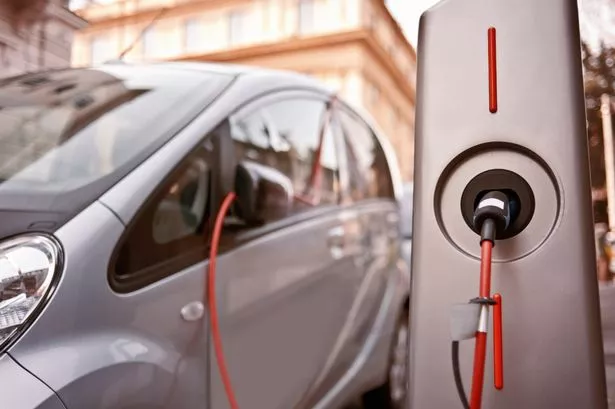Science
EV Drivers Warned of Increased Fire Risks and Toxic Hazards

A recent report from Allianz Commercial has raised alarms for electric vehicle (EV) owners regarding the heightened risk of car fires and associated hazards. The “Global Risk Dialogue” report predicts that by the end of the decade, the number of electric vehicles on the road could surpass 200 million. While the data indicates that EVs are not statistically more likely to catch fire than traditional internal combustion engine vehicles, it highlights significant risks related to battery technology.
The report emphasizes that incidents of “thermal runaway,” which can lead to explosions and the release of toxic chemicals, pose serious threats to both individuals and property. Rafael Rioboo, the Regional Head of Risk Consulting for Allianz Commercial’s Iberia region, explained that the most dangerous phase of an EV’s lifecycle regarding battery risk occurs during charging, rather than while driving. He noted that overheating or short-circuiting of electric vehicle chargers can severely damage the vehicle’s battery systems.
Understanding the Risks Associated with EVs
Despite the concerns, experts like Colin Walker, head of transport at the Energy and Climate Intelligence Unit, assert that EVs are statistically much less likely to ignite compared to petrol or diesel cars. Walker remarked, “All the data shows that EVs are just much, much less likely to set on fire than their petrol equivalent.” He pointed out that numerous fires involving traditional vehicles often go unreported, skewing public perception of the risks associated with EVs.
The report also outlines the actions being taken by police forces to address these risks. Authorities are isolating damaged vehicles and managing “post-crash battery hazards” to prevent potential incidents. Rioboo stressed that thermal runaway events can escalate rapidly, posing grave dangers not only to vehicle occupants but also to emergency responders. “It ignites, escalates, and overwhelms,” he stated, emphasizing the urgency of addressing these hazards.
Explosive Potential of EV Batteries
Concerns surrounding electric vehicle batteries extend beyond fires. Paul Christensen, a professor of pure and applied electrochemistry at Newcastle University, underscores the risks of “vapour cloud explosions and rocket flames” that can occur when gases are released from battery cells. These incidents can produce deadly gases such as carbon monoxide and hydrogen cyanide, further elevating the stakes for EV owners.
While the overall fire risk remains a topic of debate, the Allianz report serves as a crucial reminder for both manufacturers and consumers to remain vigilant about the potential dangers linked to EV batteries. As the automotive landscape continues to evolve with the rise of electric vehicles, understanding these risks will be essential for ensuring safety on the roads.
-

 Entertainment3 months ago
Entertainment3 months agoAnn Ming Reflects on ITV’s ‘I Fought the Law’ Drama
-

 Entertainment4 months ago
Entertainment4 months agoKate Garraway Sells £2 Million Home Amid Financial Struggles
-

 Health3 months ago
Health3 months agoKatie Price Faces New Health Concerns After Cancer Symptoms Resurface
-

 Entertainment3 months ago
Entertainment3 months agoCoronation Street’s Carl Webster Faces Trouble with New Affairs
-

 Entertainment3 months ago
Entertainment3 months agoWhere is Tinder Swindler Simon Leviev? Latest Updates Revealed
-

 Entertainment4 months ago
Entertainment4 months agoMarkiplier Addresses AI Controversy During Livestream Response
-

 Science1 month ago
Science1 month agoBrian Cox Addresses Claims of Alien Probe in 3I/ATLAS Discovery
-

 Entertainment4 months ago
Entertainment4 months agoKim Cattrall Posts Cryptic Message After HBO’s Sequel Cancellation
-

 Entertainment3 months ago
Entertainment3 months agoOlivia Attwood Opens Up About Fallout with Former Best Friend
-

 Entertainment6 days ago
Entertainment6 days agoCoronation Street Fans React as Todd Faces Heartbreaking Choice
-

 Entertainment3 months ago
Entertainment3 months agoMasterChef Faces Turmoil as Tom Kerridge Withdraws from Hosting Role
-

 Entertainment4 months ago
Entertainment4 months agoSpeculation Surrounds Home and Away as Cast Departures Mount













